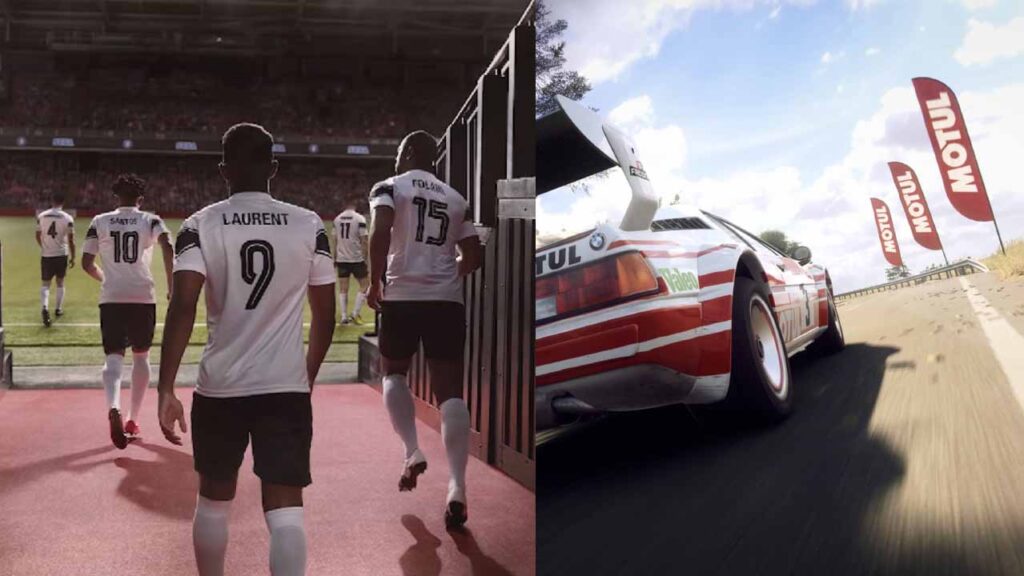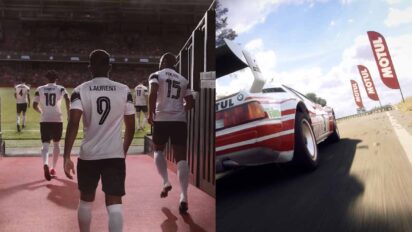Bidstack’s proposition is ingeniously simple – if today’s games are realistic enough to simulate the billboards and pitch-side ads we see in real life, why not sell that space to advertisers?
The London-based firm, which itself began in real-life Out Of Home (OOH) advertising, has pivoted to native in-game ads at a time when many of the most popular games around are aiming to simulate the real world.
When gamers boot up racing game DiRT Rally 2.0 or Football Manager, the ads they see are from real brands who pay for that virtual space.
The national lockdown has since provided an unexpected level of vindication to the idea.
Football Manager, a game which would usually reach an estimated 75,000 concurrent players per month, has seen a rise to more than 180,000 during the pandemic while real stadiums remain empty.
Bidstack founder and CEO James Draper told BusinessCloud that the company has seen a “massive jump” in ad requests via its system since lockdown began.
“For the industry as a whole, the impact in terms of content consumed or hours played is immeasurable, with a wider audience than ever before having the time to invest in their gaming skills and experience level,” he said.
But while the lockdown presents a once-in-a-lifetime ‘perfect storm’ for the company to makes its case to new clients, it has instead chosen to focus on a collaboration with the Department for Digital, Culture, Media and Sport and games giant Codemasters.
‘Stay Home, Save Lives’ advertisements are now appearing in the virtual equivalent of environments people are no longer allowed to visit, such as football stadiums.
“Collaborating with Codemasters to support the campaign was a natural step in response to COVID-19,” explained Draper.
“The ‘Stay At Home’ posters featured in Codemasters’ DiRT Rally 2.0 are a creatively authentic way for the NHS and UK government to target highly engaged audiences.”
Bidstack has served the ads to tens of thousands of DiRT Rally 2.0 players, with over 80% of its global monthly audiences having seen the campaign.
“The majority of those users are based throughout Europe and we’ve hit the hundreds of thousands mark in billable impressions,” he said.
Toby Evan-Jones, VP Business Development at Codemasters, explained how the idea came about.
“We came to realise that technology within our games, which enables the remote updating of banners within the virtual environment, could be repurposed to assist with the coronavirus communication effort.
“Through collaboration with Bidstack, we began delivering a version of Public Health England’s ‘Stay Home, Save Lives’ message into DiRT Rally 2.0. It’s fantastic to see conversations already being sparked amongst our community.”
This is the second time Bistack has lent its virtual advertising space to the cause of improving public health: in 2018 the company provided in-game ad space for a mental health campaign targeted at men in Leeds who were playing Football Manager.
The NHS’s mental health-focused website for young people, MindMate, utilised its in-game advertising to access a hard-to-reach audience of young men, to encourage them to reach out to mental health and wellbeing specialists if they felt they needed to.
Draper said that the firm’s offering makes projects like this possible by combining the impact of large, outdoor advertising with the intricate user data you’d typically only get online. It allows the firm to say with pinpoint accuracy how many people of a certain age saw the ad in a UK city.
And all this can be done in a non-intrusive fashion without interrupting gameplay.
The Bidstack team, which Draper says are all gamers, are focused on creating ads which enhance realism without getting in the way of the gaming experience.
“We want to ensure we respect the artwork and worlds created and not shoehorn in content which destroys work. We’re here to add not just additional revenue, but authenticity to environments,” he said.
When it comes to games designed for escapism rather than reality, such as the world’s best-selling modern game Minecraft, Draper says “if the game isn’t based in real-life settings with natural ad placements, the insertion process is more labour intensive across the board”.
He added: “That isn’t to say games which are based in unreal universes – such as Rocket League – wouldn’t be accessible for advertising, as long as the ad placement is sensitive to the environment.”
But even Mincraft’s revenue is dwarfed by the sector’s biggest cash-cow – the fast-growing world of eSports.
Draper says eSports is an “exciting opportunity” and hinted there were “a number of exciting conversations going on surrounding the secondary gaming audience – so watch this space”.


